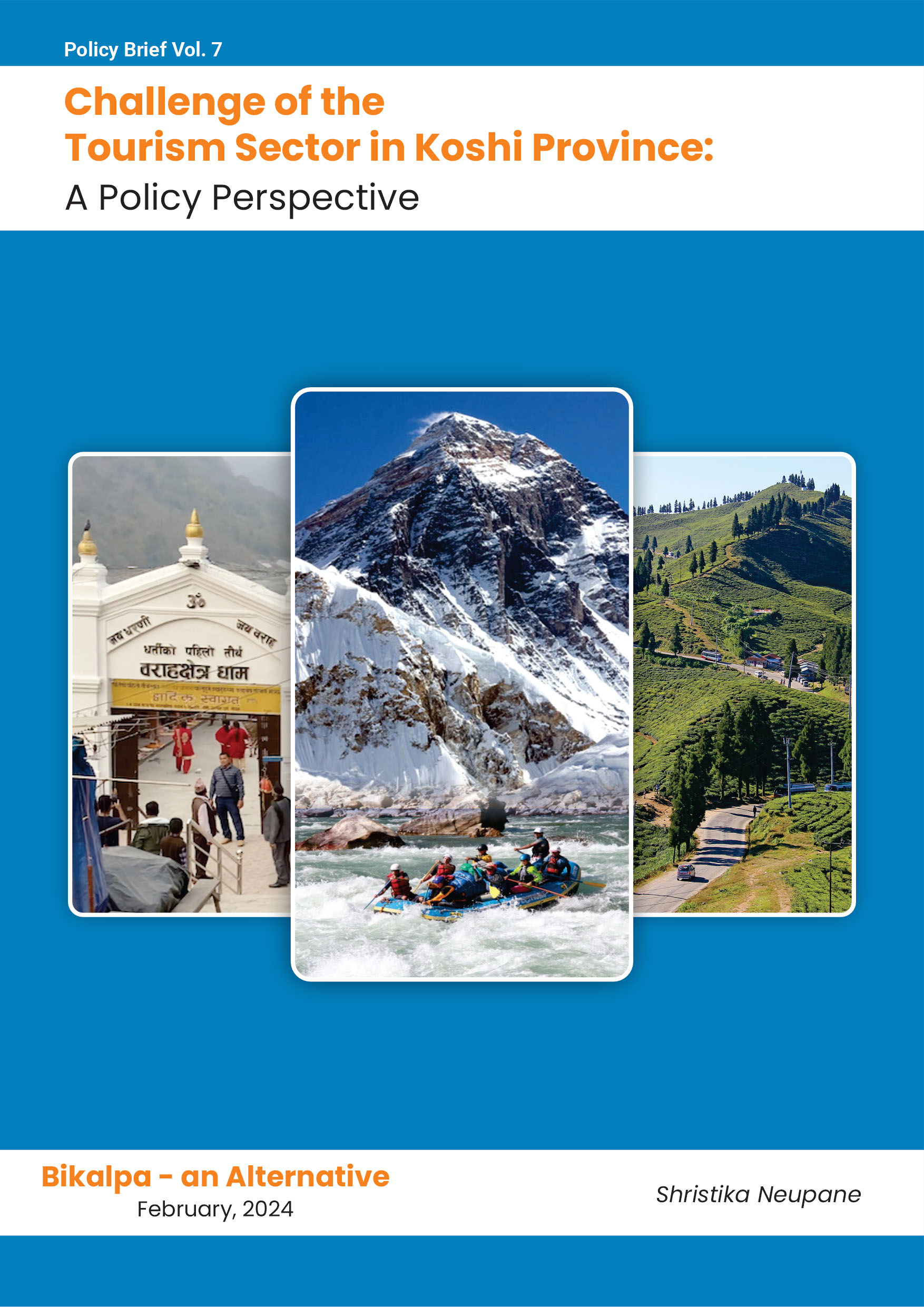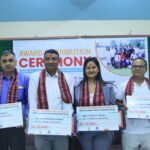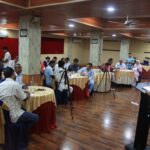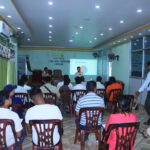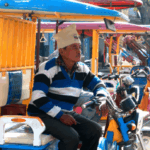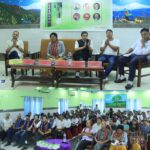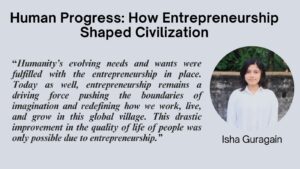Biratnagar Citizen Campaign organized its review meeting at Hotel Shree Krishna at 8th March 2025, bringing together all members of the initiative for an engaging discussion on the future agenda and program direction. The primary objective of the program was to bring together all the members of the Biratnagar Citizen Campaign and facilitate invigorating discussions on the future agenda and programs. The meeting provided a platform for an exchange of ideas, fostering collaboration and reinforcing the commitment of the members to the cause of civic engagement and good governance.
The session commenced with a warm welcome from Mr. Samir Chhetri, who greeted all attendees and emphasized the importance of the gathering. He outlined the purpose of the program, highlighting the significance of fostering dialogue, collective problem-solving, and structured planning for the Biratnagar Citizen Campaign’s future. Mr. Chhetri also introduce the participants to one another, setting the tone for an interactive and productive meeting.
Following the introductions, Mr. Basanta Adhikari from Bikalpa delivered a compelling presentation on the Biratnagar Citizen Initiative. In his presentation, he shed light on the primary objective of the initiative, describing it as a non-profit, non-political civic organization dedicated to promoting good governance, transparency, accountability, and social justice.
The presentation points out key aspects of the initiative:
- Educating citizens about their rights and responsibilities.
- Empowering individuals through targeted programs.
- Monitoring activities of government, non-governmental, and public institutions funded by taxpayers.
- Advocating for policy reforms through lobbying and advocacy efforts.
- Upholding democratic values by amplifying citizen voices and ensuring government accountability.
Mr. Adhikari further elaborated on how the Biratnagar Citizen Initiative actively works to amplify the voices of the people, ensuring that the government remains accountable for its actions. He outlined the key programs and initiatives undertaken by the campaign, emphasizing the need for citizen participation and collaboration to sustain the momentum of change. The presentation provided the attendees with a clear understanding of the campaign’s mission, achievements, and future direction.
After the presentation, the floor was opened for discussion, allowing participants to share their views on various issues affecting Biratnagar. The interactive segment facilitated a robust exchange of ideas, concerns, and potential solutions. Participants raised several critical issues, emphasizing the need for continued efforts in fostering civic engagement, strengthening advocacy, and enhancing transparency in governance. In response to these discussions, the following action points and future programs were proposed:
- Establishing the Friend Circle of Biratnagar Nagarik Abhiyan – Creating a network of civic-minded individuals committed to fostering community development, advocating for social issues, and promoting active citizenship in Biratnagar.
- Monthly Discussion Sessions (Chiya Guff) – Organizing regular informal gatherings where citizens can openly discuss pressing community concerns, exchange ideas, and collaboratively explore solutions in a relaxed and engaging environment.
- Case Documentation and Public Awareness Campaigns – Systematically collecting, documenting, and publicizing significant social issues, legal cases, and community challenges to inform the public and drive collective action.
- Governance and Accountability Awareness in Schools and Colleges – Conducting structured educational programs in academic institutions to teach students about civic responsibilities, democratic participation, and ethical governance.
- Monthly Engagements with Public Officials and Community Leaders – Arranging scheduled meetings where residents can interact with elected representatives and local authorities to discuss concerns, propose solutions, and promote transparency in governance.
- Formation of Thematic Committees for Civic Issues – Establishing specialized committees focused on various civic topics such as environmental sustainability, education, public health, and urban development, ensuring targeted efforts toward community improvement.
- Creation of Neighborhood Citizen Groups (Tole Groups) – Setting up small, localized groups within different neighborhoods to facilitate grassroots-level participation, problem-solving, and collective action on community concerns.
- Formation of Advocacy and Pressure Groups – Organizing dedicated citizen groups that actively lobby policymakers, challenge inefficiencies, and hold authorities accountable for governance and service delivery.
- Collaboration with Other Community Organizations and Clubs – Partnering with existing social groups, youth clubs, and non-governmental organizations to amplify civic engagement efforts and build a stronger support network for community-driven initiatives.
- Production of Short Educational Videos on Civic and Social Issues – Developing informative digital content in video format to raise awareness about key societal issues, governance processes, and citizen responsibilities, ensuring accessibility for a wider audience.
- Awareness Campaigns on Critical Social Issues – Launching targeted initiatives addressing problems such as drug abuse, suicide prevention, mental health awareness, gender-based violence, and other pressing concerns through workshops, street plays, and community discussions.
- Creation of Monitoring and Follow-Up Committees – Establishing dedicated teams to track the progress of planned civic projects, ensuring that proposed actions are effectively implemented and sustained over time.
- Public Hearings for Community Voices – Organizing structured forums where residents can directly present their concerns, grievances, and suggestions to government officials, fostering accountability and participatory governance.
- Developing a Coordinated Operational Workflow for Efficiency – Implementing a structured system to streamline civic activities, allocate responsibilities effectively, and optimize the impact of various initiatives.
- Organizing Fundraising Activities for Civic Projects – Conducting events and initiatives such as charity drives, crowdfunding campaigns, and community fundraisers to generate financial resources for public service efforts.
- Ward-Level Civic Engagement Programs – Designing and executing localized initiatives in individual wards to encourage direct citizen participation, address micro-level community issues, and improve neighborhood development.
- Expanding Community Membership at the Ward Level – Actively recruiting and encouraging more individuals to join the civic movement, fostering a larger base of engaged citizens who contribute to community-building efforts.
- Strategic Social Media Advocacy and Digital Outreach – Leveraging digital platforms such as Facebook, Twitter, and Instagram to amplify awareness campaigns, engage the youth, and spread key messages efficiently.
- Extending Civic Campaigns Beyond Biratnagar – Expanding community-driven initiatives to neighboring regions, ensuring that social advocacy and reform efforts reach a broader population and create a larger impact.
- Developing Public Recreation and Community Interaction Spaces – Establishing parks, reading corners, and open areas where citizens can gather, interact, and engage in constructive social activities.
- Advocating for Nationwide Availability of Essential Medicines – Pushing for policy changes and logistical improvements to ensure that prescribed and life-saving medications are accessible across urban and rural areas alike.
- Launching Mentorship Programs for Youth and Emerging Leaders – Creating structured mentorship opportunities where experienced professionals guide students, young activists, and aspiring changemakers in civic leadership and career development.
- Establishing an Idea Bank for Community Solutions – Developing a structured platform where citizens can submit innovative ideas for social improvement, with a system in place to evaluate, refine, and implement feasible solutions.
- Introducing Part-Time and Community-Based Work Opportunities – Creating flexible employment initiatives for students, homemakers, and unemployed individuals to contribute to civic projects while earning an income.
- Structuring Membership Fees and Guidelines for Sustainability – Developing a clear framework for membership contributions, defining responsibilities, and ensuring a sustainable financial model to support long-term civic initiatives.
The meeting concluded with an agreement on the need for continued collaboration and commitment for the discussed programs. Also, participants expressed enthusiasm for the proposed initiatives and pledged to work towards their successful implementation.


